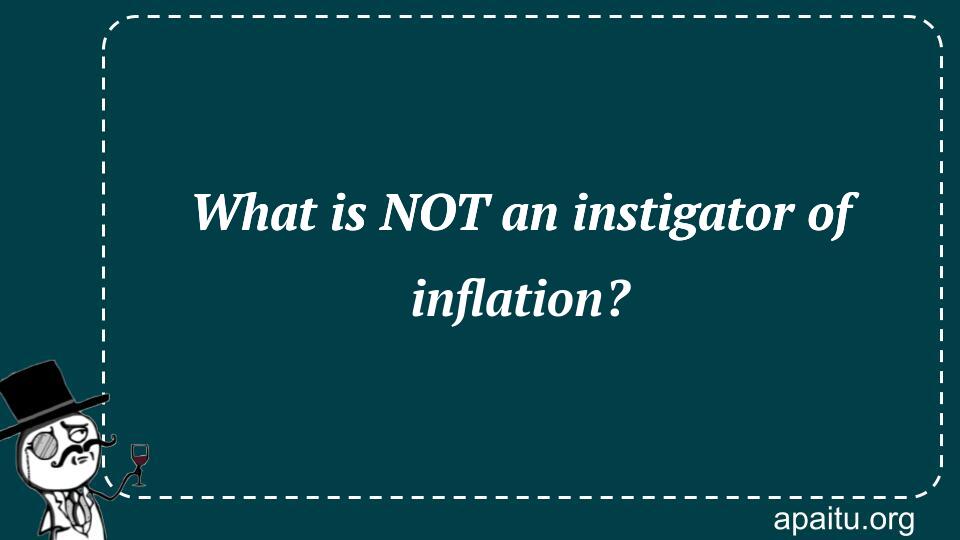Question
Here is the question : WHAT IS NOT AN INSTIGATOR OF INFLATION?
Option
Here is the option for the question :
- Increased demand
- Government spending
- Rising wages
- Interest rate hikes
The Answer:
And, the answer for the the question is :
Explanation:
Many factors, including growing demand, government spending, and wage growth, can accelerate the rate at which prices for goods and services rise. However, the Federal Reserve has found that raising interest rates is an effective strategy for controlling inflation. Rising interest rates make borrowing money more expensive, which dampens consumer spending.

Inflation is a sustained increase in the general price level of goods and services in an economy over time. It is a complex phenomenon that can be caused by a variety of factors, including changes in the money supply, shifts in supply and demand, and changes in government policies. However, interest rate hikes are not an instigator of inflation.
Interest rate hikes refer to an increase in the cost of borrowing money, which is typically set by central banks such as the Federal Reserve in the United States. Higher interest rates can have a range of effects on the economy, including slowing down economic growth and reducing inflation. This is because higher interest rates make it more expensive for businesses and consumers to borrow money, which can lead to a decrease in spending and a slowdown in economic activity.
While interest rate hikes can have a range of effects on the economy, they are not a direct cause of inflation. In fact, higher interest rates are often used by central banks as a tool for controlling inflation. When inflation is high, central banks may raise interest rates in order to slow down economic growth and reduce inflationary pressures.
So if interest rate hikes are not an instigator of inflation, what factors do contribute to inflation? One of the main causes of inflation is an increase in the money supply. When there is more money in circulation, prices tend to rise as there is more demand for goods and services. This can happen when the government prints more money, or when banks lend more money than they have in reserves.
Another factor that can contribute to inflation is changes in supply and demand. When there is a shortage of a particular good or service, prices tend to rise as consumers compete to obtain the scarce resource. Conversely, when there is an oversupply of a good or service, prices tend to fall as businesses compete to attract buyers.
Changes in government policies can also contribute to inflation. For example, government policies that increase spending or reduce taxes can lead to an increase in demand for goods and services, which can drive up prices. Similarly, policies that restrict the supply of goods and services, such as price controls or trade barriers, can lead to higher prices.
while interest rate hikes can have a range of effects on the economy, they are not a direct cause of inflation. Instead, inflation is caused by a complex range of factors including changes in the money supply, shifts in supply and demand, and changes in government policies. By understanding these factors, policymakers can work to control inflation and maintain a stable and prosperous economy.